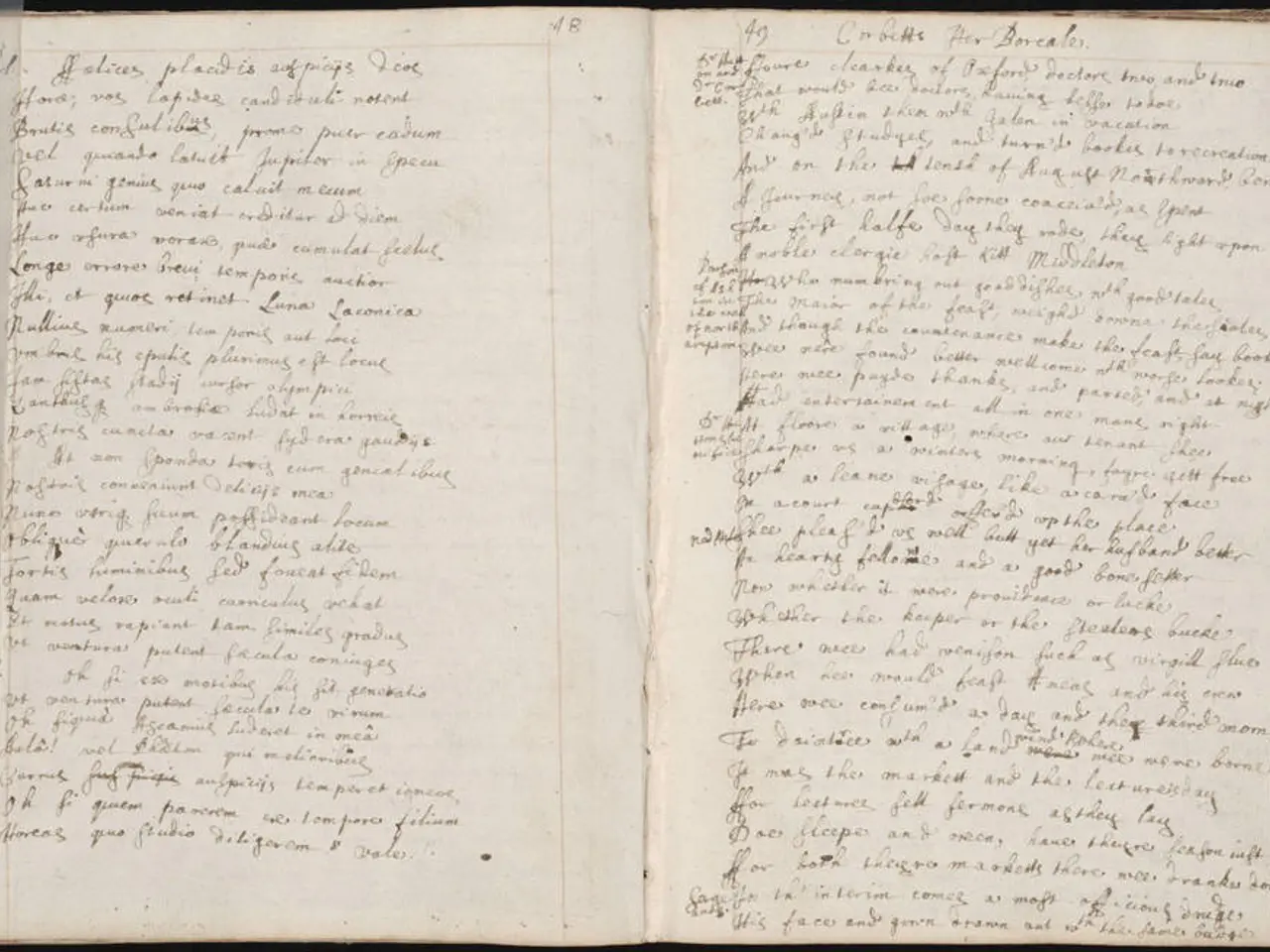Exploring Introspection as a Learner in the Context of TOK (Theory of Knowledge)
In the realm of Theory of Knowledge (TOK), self-reflection plays a pivotal role in fostering a deeper understanding of knowledge and oneself. By acknowledging the influence of one's perspective on object selection or interpretation, TOK exhibitions can become a platform for self-discovery.
Reflecting on one's role as a knower in TOK essays can add an extra layer of critical depth. This introspection encourages students to question their assumptions, evaluate personal influences, and consider the implications in TOK arguments and conclusions.
Effective strategies for integrating self-reflection in TOK essays and presentations include explicitly connecting personal insights with critical analysis of knowledge questions, demonstrating reflective awareness about one's own biases and assumptions, and systematically linking theory with real-life situations to explore the implications and validity of knowledge claims.
One key approach is the use of reflective cycles, which combine thinking about knowledge (reflection-on-action) and thinking to improve understanding (reflection-in-action). This continuous critique and lifelong learning, as suggested by educational theorists like Freire and Schön, emphasizes the importance of a dynamic and critical self-dialogue.
Critically examining personal perspectives and biases is another essential strategy. This deep reflective practice involves questioning assumptions and exploring how one's beliefs shape understanding of knowledge claims. This introspection goes beyond surface observations to challenge the student's own standpoint and ethical implications.
Employing open-ended knowledge questions that invite reflection on multiple viewpoints and the nature of knowing, enhanced by TOK terminology aligned with Areas of Knowledge (AOKs) and Ways of Knowing (WOKs), can further enhance self-reflection.
Incorporating real-life examples with an explicit reflection on how they illustrate knowledge frameworks and affect personal understanding, such as the integration of indigenous knowledge or scientific evidence, fosters a bridge between theory and practice.
Structuring reflections throughout the essay or presentation, for example, by integrating self-reflective comments within the analysis segments or including a concluding section that reflects on what was learned about knowledge and oneself through the inquiry, is also crucial.
Progressing from superficial to in-depth reflection, analyzing not only what knowledge is but how and why it is constructed, as well as identifying unknown or uncertain areas to encourage openness to evolving understanding, is another essential aspect of self-reflection in TOK.
Understanding one's limitations in TOK, including recognizing where one lacks expertise or experience, is important. Metacognition, or reflecting on oneself as a knower, demonstrates maturity and credibility in TOK. Reflecting on oneself as a knower shows understanding not just of what one knows, but also of how one knows it.
Using TOK terminology like metacognition, perspective, justification, and bias can enhance self-reflection. Using personal anecdotes in TOK essays can illustrate one's role as a knower, but they should be analyzed, not just narrated.
Accessing self-reflection frameworks, Jojo AI metacognition prompts, personal example libraries, and TOK essay structure templates can be done by visiting RevisionDojo. Templates, examples, and guides are available to help students integrate self-reflective practices into TOK essays.
Connecting reflection to the conclusion highlights how one's understanding has been affected. Reflecting on changes in one's thinking is a part of TOK reflection, demonstrating progression in understanding.
In conclusion, self-reflection in TOK is a vital component of the TOK assessment process. It encourages a dynamic and critical self-dialogue that is crucial in TOK assessments, demonstrating meta-cognitive awareness and the ability to link personal knowledge with universal knowledge claims and ethical considerations.
Engaging in self-reflection actively promotes personal growth in the realm of education-and-self-development, as it encourages students to question their assumptions and explore how their beliefs shape their understanding (personal-growth). By employing reflective cycles and critically examining personal perspectives and biases, students can foster a deeper understanding of knowledge and themselves (personal-growth).




